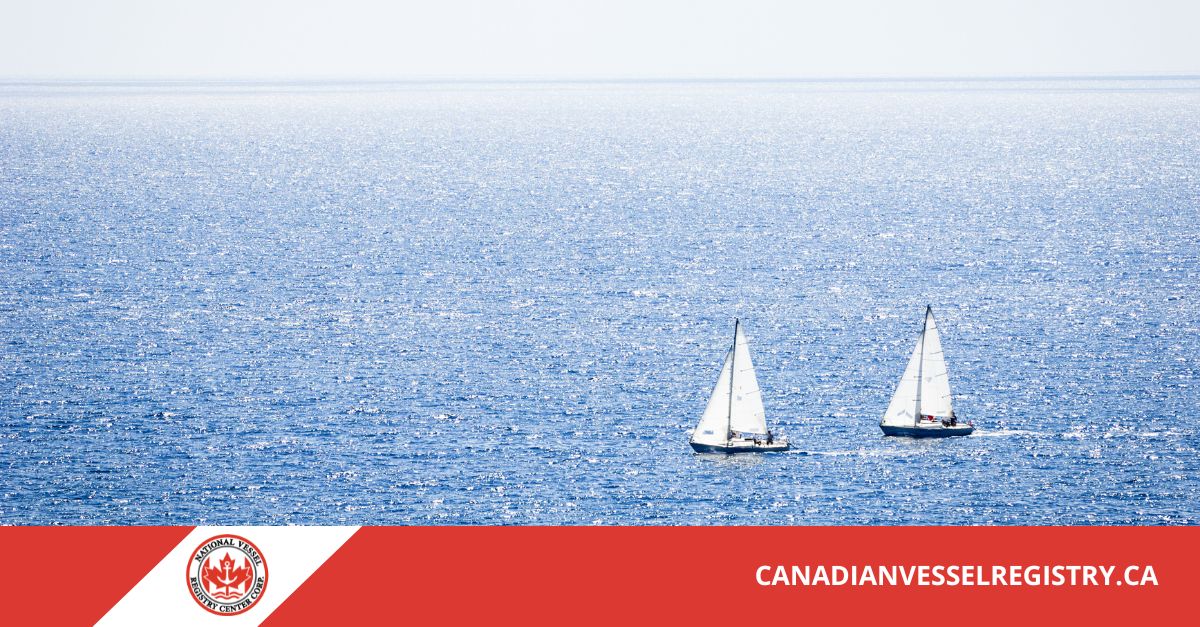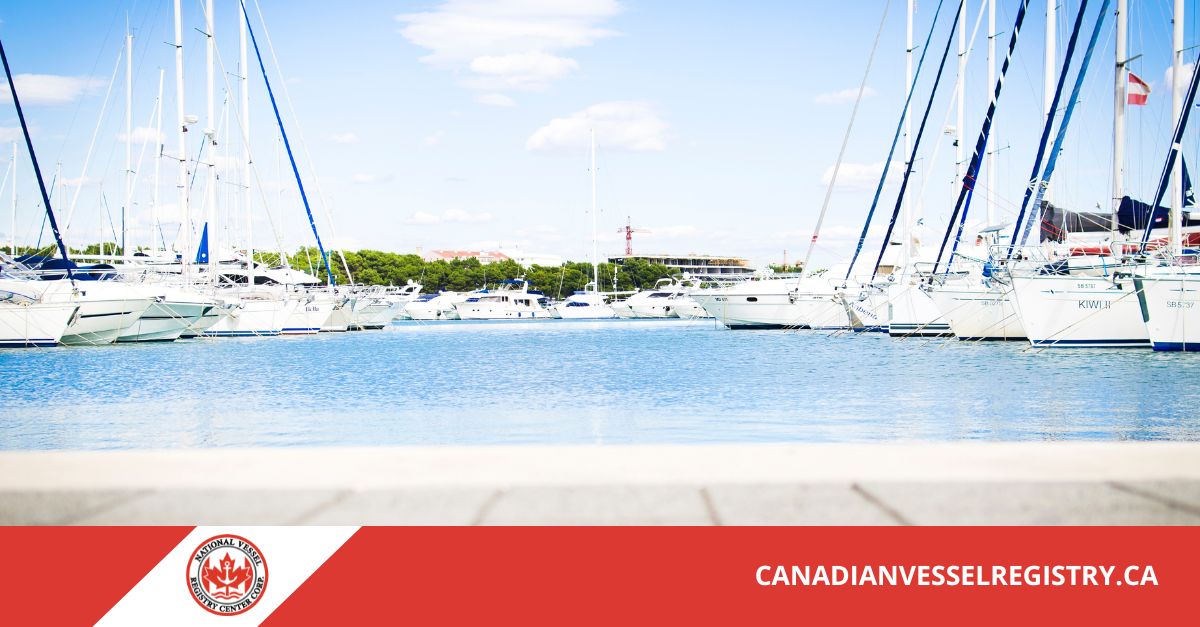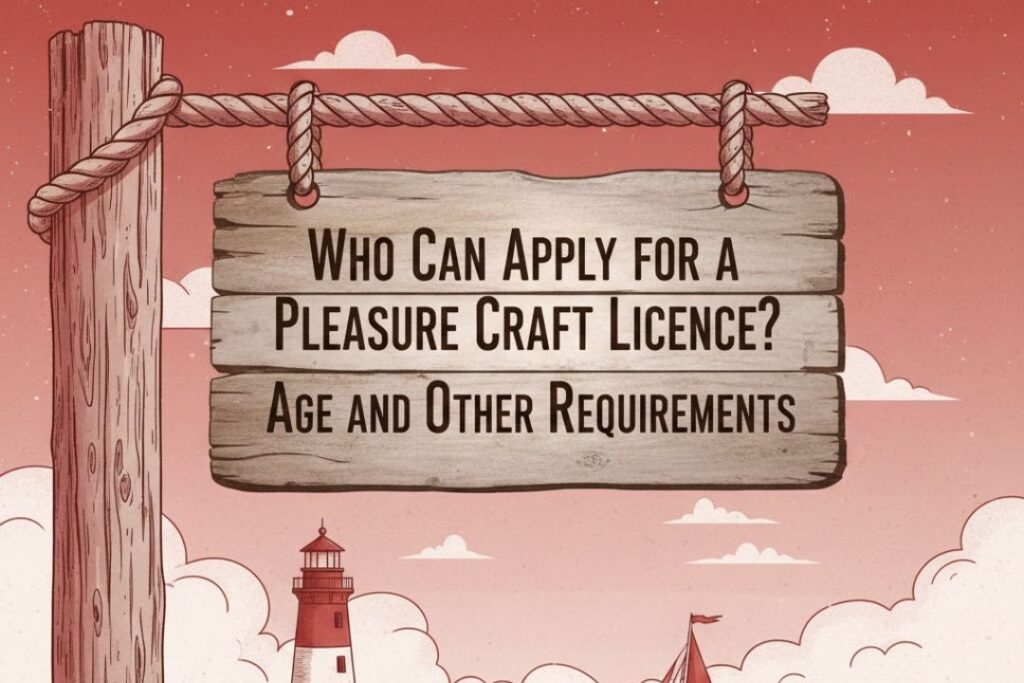Anyone who meets Canada’s age and operating conditions can apply for a pleasure craft licence, provided the boat is used for recreational purposes and falls within federal requirements.
In practical terms, age determines what type of boat a person may operate and whether supervision or horsepower limits apply, while licensing applies to the boat itself and must be carried on board regardless of who is operating it.
Through our service at the National Vessel Registry Center Corp., we make access to official licensing forms straightforward so boat owners can apply correctly and operate with confidence.
Eligibility Basics for Pleasure Craft Licensing in Canada
A pleasure craft licence applies to recreational boats powered by motors of 10 horsepower (7.5 kW) or more. While age restrictions focus on who may operate a boat, licensing rules focus on the boat and its lawful operation on Canadian waters.
Key points every boat owner should know include:
- The licence is issued to the owner of the boat, not the operator.
- The licence must be carried on board at all times.
- Licensing requirements apply regardless of the operator’s age.
- Licensing rules apply across most of Canada, with limited territorial exceptions related to operator age.
Our role is to provide direct access to the official forms boat owners need so they can apply efficiently and avoid unnecessary delays.
How Age Affects Who May Operate a Boat
Age restrictions in Canada relate to operating a recreational boat, not owning or licensing it. These operating limits vary by age group and engine power and are established under Canadian maritime laws.
These age-based rules do not apply in Nunavut or the Northwest Territories, where different operating standards may exist.
licenced pleasure craft
Operators Under 12 Years Old
Children under the age of 12 may operate certain boats, but only within strict limits when unsupervised.
Unsupervised operators under 12:
- May only operate boats with engines up to 10 horsepower (7.5 kW).
- Must not exceed this power limit under any circumstances.
- Are subject to federal safety requirements, even at low horsepower.
Supervision changes what is allowed:
- With direct supervision from someone at least 16 years old, additional flexibility may apply.
- Supervision must be active and ongoing, not occasional.
Even when a young operator is permitted to operate a boat, the licensed owner remains responsible for ensuring compliance.
Operators Aged 12 to 15
Teen operators are permitted to operate more powerful boats, but still face limitations when operating without supervision.
For operators aged 12 to 15 who are unsupervised:
- Boats may have engines up to 40 horsepower (30 kW).
- Personal watercraft are not permitted without supervision.
- Safety compliance remains mandatory regardless of experience.
With supervision:
- An individual aged 16 or older may supervise operation.
- Supervision must be close enough to provide immediate guidance.
We frequently assist families by providing the appropriate licensing forms so ownership and operation align correctly with these age thresholds.
Operators 16 Years and Older
Once a person reaches 16 years of age, operating restrictions change significantly.
Operators aged 16 and over:
- May operate boats of any horsepower.
- May operate a personal watercraft without supervision.
- Are legally recognized as independent operators under federal standards.
While age restrictions are lifted at this stage, licensing obligations remain unchanged. The boat must still be properly licensed, and the licence must be carried onboard.
pleasure craft licence
Licensing Requirements That Apply at Any Age
Regardless of who is operating the boat, licensing rules apply consistently.
Every licensed recreational boat must:
- Display the assigned licence number on both sides of the bow.
- Carry a valid licence document on board.
- Maintain accurate owner information.
The pleasure craft licence is tied to the boat itself, not to the operator’s age or experience. Our service supports owners by providing the correct federal forms so updates and applications are handled properly.
Territorial Exceptions to Age-Based Rules
Age-based operating rules do not apply in:
- Nunavut
- Northwest Territories
Boat owners operating in or traveling to these regions should confirm local requirements. Federal licensing obligations for the boat may still apply even when age-based operating rules differ. We help owners access the necessary licensing forms so they remain compliant wherever their boating activities take place.
Applying for a Pleasure Craft Licence Through Our Service
We support boat owners across Canada by offering easy access to official licensing forms. Our platform is designed for clarity and efficiency, helping you submit accurate information the first time.
When applying, owners typically need to:
- Identify the boat’s propulsion type.
- Provide basic ownership details.
- Confirm recreational use.
We do not collect or secure documents on your behalf. Instead, we provide the standardized forms that allow you to use your existing information efficiently.

When Changes to Your Licence Are Needed
Over time, ownership details or boat information may change. In these situations, updates must be submitted so records remain current.
Common scenarios include:
- Change of ownership requiring a pleasure craft licence transfer.
- Updates after a name or address change.
- Replacing a lost or damaged licence document.
Our service offers the appropriate forms for each situation, allowing boat owners to keep their licensing information accurate without confusion.
Licence Validity and Ongoing Compliance
A pleasure craft licence does not expire, but accuracy is essential. Changes to ownership or boat details must be reported promptly.
Situations that often require attention include:
- Sale or gifting of a boat.
- Structural changes that alter identifying details.
- Corrections to recorded information.
Although there is no recurring expiration, owners should remain aware of compliance obligations, including any future pleasure craft licence renewal requirements if regulations change.
Licensing Compared to Other Boat Registers
Canada offers multiple systems for recording boats, each serving a different purpose.
It is important to note:
- A pleasure craft licence is distinct from the small boat register.
- Registration systems and licensing systems are not interchangeable.
- Each system applies based on boat use, size, and ownership needs.
We provide access only to the forms related to recreational licensing and related updates, ensuring owners pursue the correct option for their situation.
Boat Ownership, Licensing, and Sales Support
Boat owners often require licensing-related support beyond initial application.
We assist by offering forms for:
- Updating ownership after a sale.
- Verifying recorded boat information.
- Supporting boat registration in Canada when recreational licensing is required.
Our service is designed to simplify form access, helping owners move forward with confidence while remaining aligned with federal requirements.
Safety Responsibilities Linked to Licencing
While licensing focuses on identification and compliance, it also supports broader safety objectives.
Proper licensing:
- Helps authorities identify boats quickly.
- Supports accountability on Canadian waterways.
- Reduces confusion during inspections or emergencies.
By ensuring your boat is correctly licensed and information is current, you contribute to safer boating conditions nationwide.

How We Support Boat Owners Nationwide
At the National Vessel Registry Center Corp., our focus is on accessibility and clarity. We work with boat owners from diverse backgrounds, providing centralized access to federal licensing forms and related resources.
Our support includes:
- Licensing application forms.
- Ownership update forms.
- Information checks tied to licensed boats.
We do not prepare or secure documents on your behalf. Instead, we make it easier to use your existing information with the correct federal forms so you can meet your goals efficiently.
By aligning age-based operating rules with proper licensing, recreational boat owners can enjoy Canadian waters responsibly. Through our service, we help ensure that access to pleasure craft licence forms is straightforward, accurate, and aligned with federal expectations.

